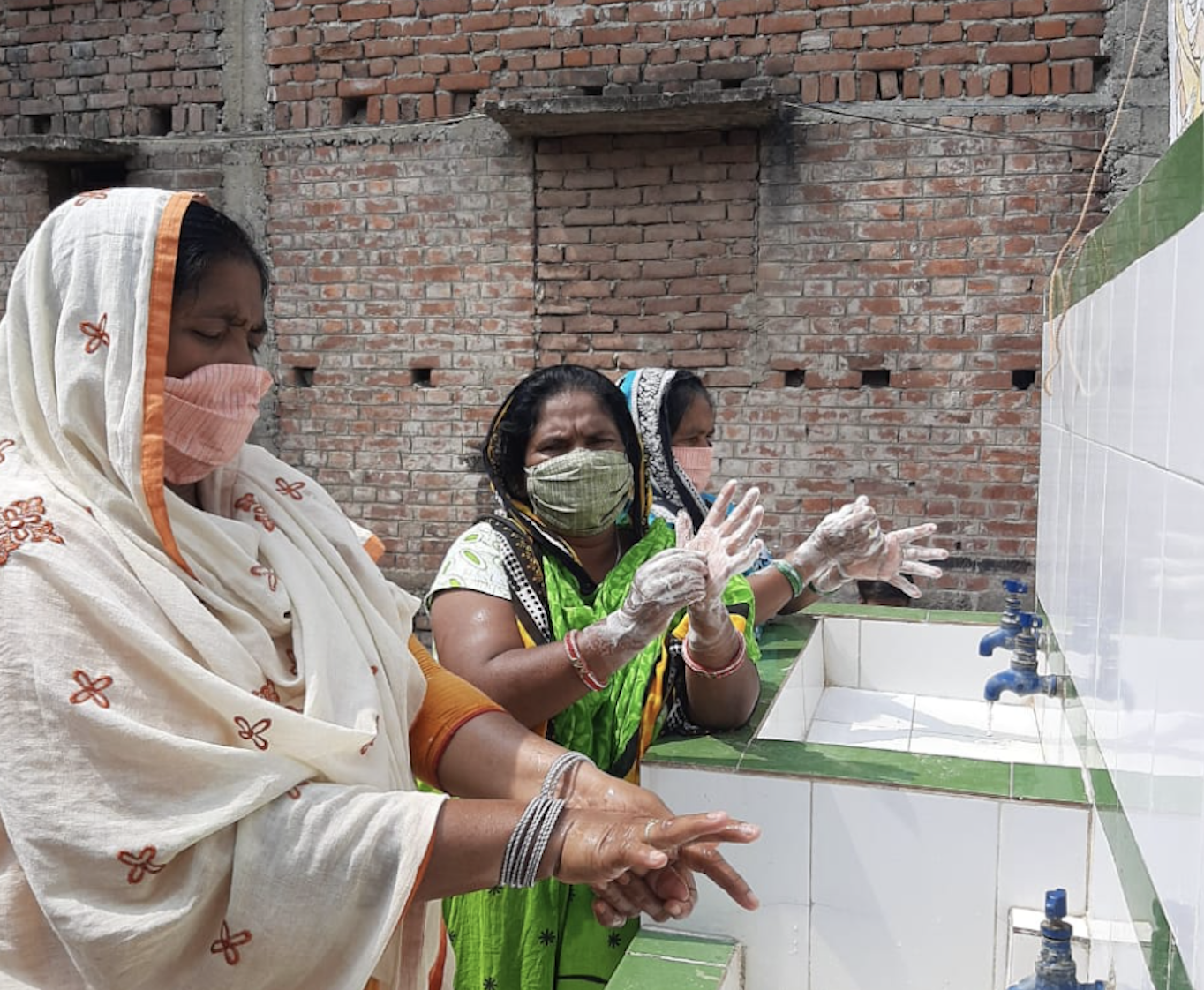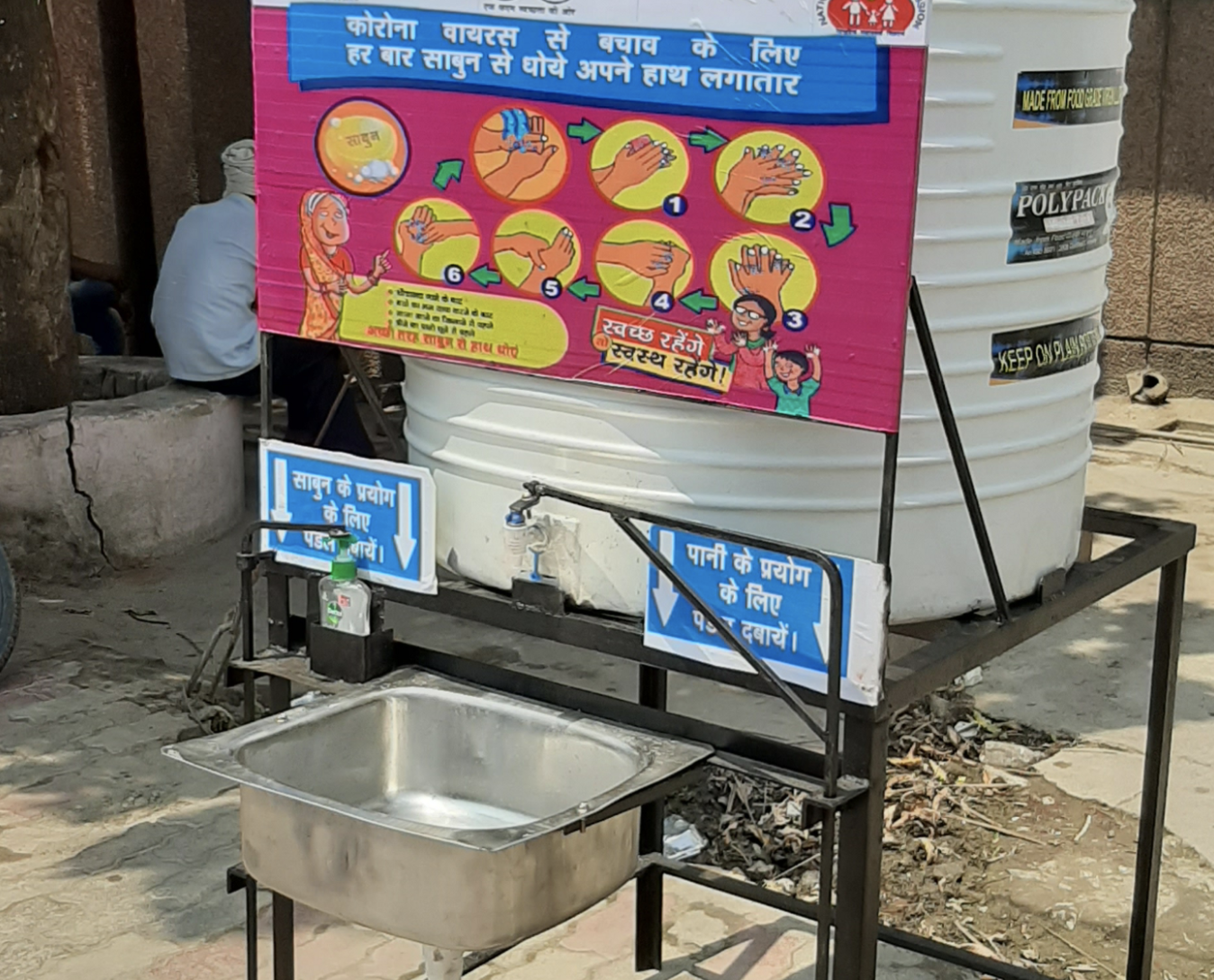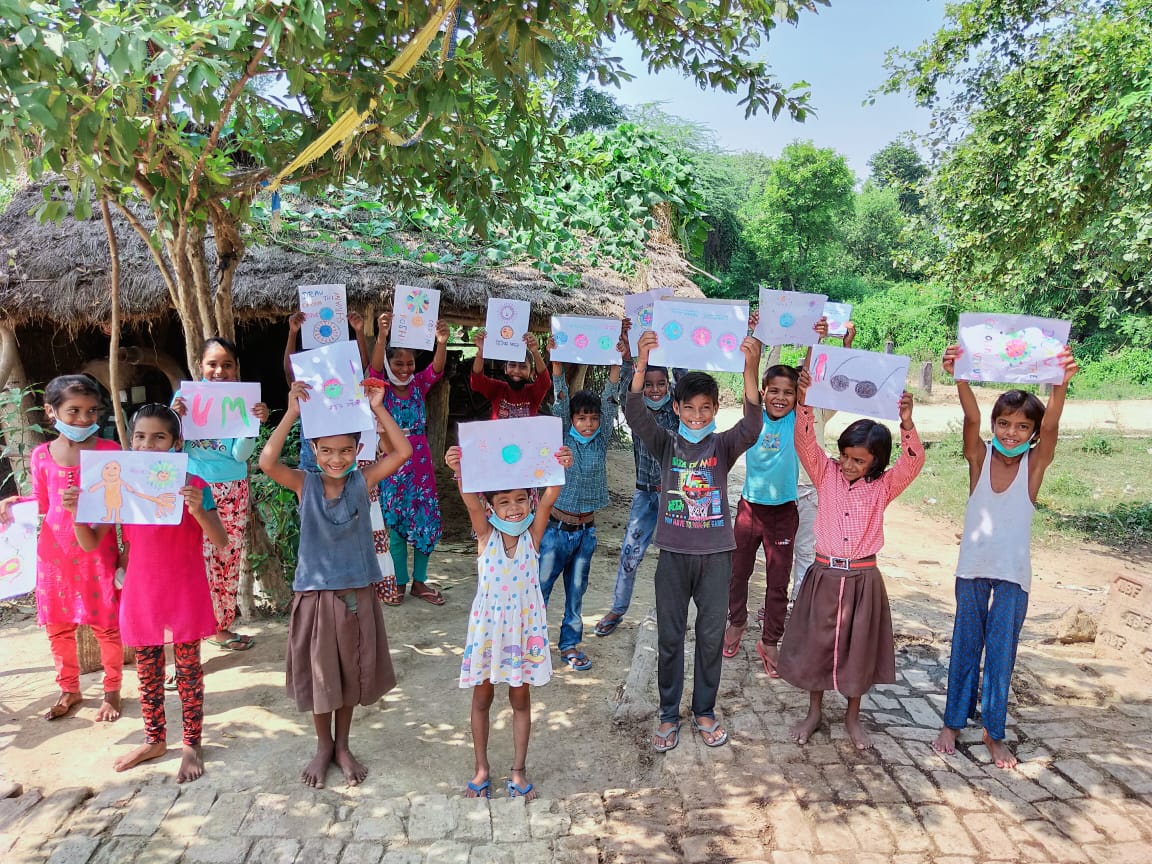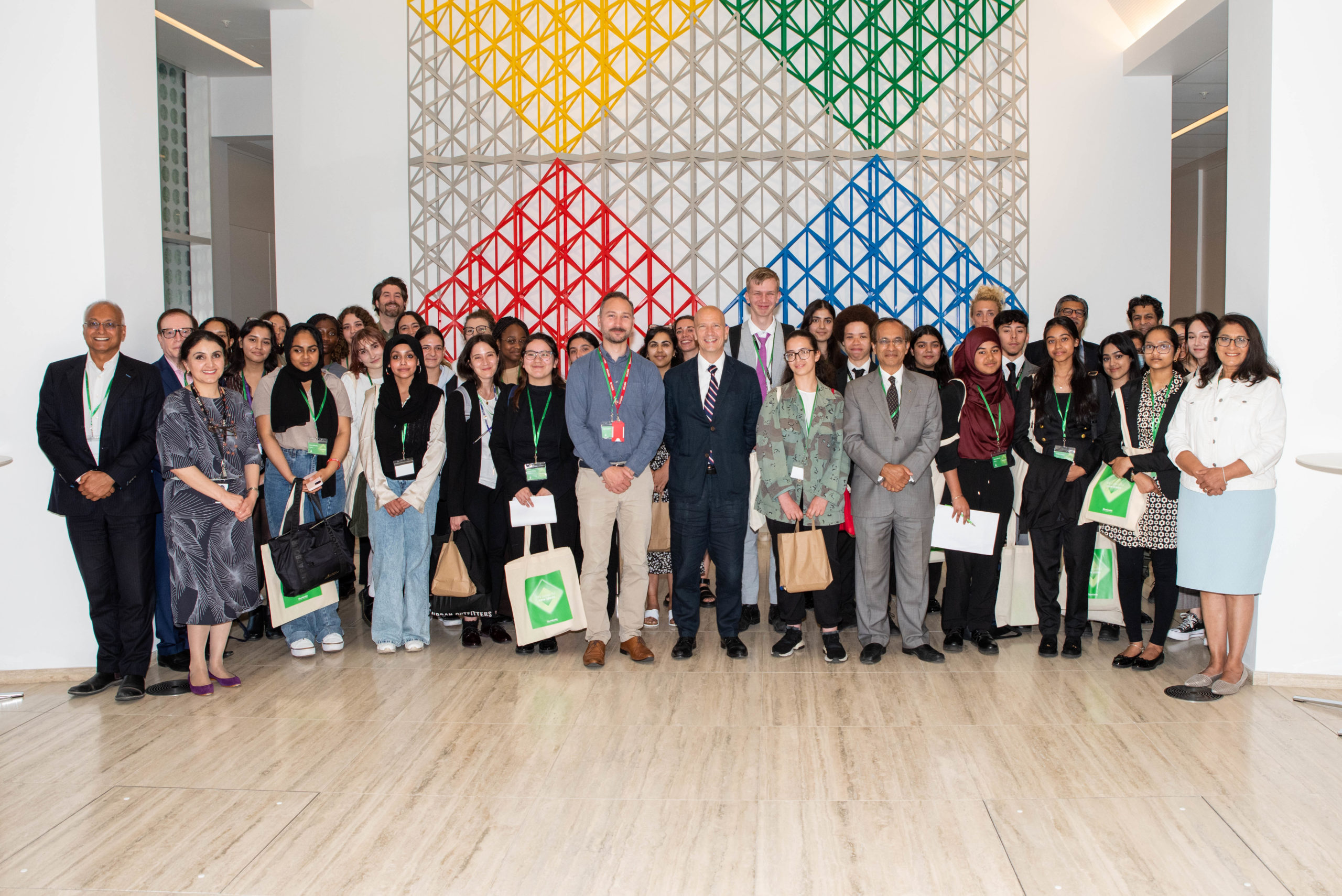On 15th October 2020, countries around the world came together – from community level through to those in high office – to push for increased action and future investment in better handwashing, hygiene and sanitation facilities for the world’s poorest communities.
The pandemic imbued the day with an even greater urgency than usual, as NGOs, private sector bodies and governments convened from around the globe to discuss how best to make progress. The Aga Khan Foundation (AKF), as a proud member of the Hygiene and Behaviour Change Coalition (HBCC) – a programme supported by Unilever and the UK’s Foreign, Commonwealth and Development Office – wanted to play its part in the communities it works in. Thanks to its years of work to increase access to sanitation facilities and improve hygiene practices, AKF India was well-placed to host a series of community-level and online events on the day and in the lead up to it.

A series of community-campaigns were organised with the involvement of local actors – teachers, school children, front-line health workers and others – to raise awareness about the importance of handwashing, particularly in light of COVID-19.
In a number of high footfall and other strategic locations, AKF India had installed foot-operated handwashing stations, designed at low-cost, and completely touch-free to enable the most hygienic standards possible. These were inaugurated by local government officials in a series of events that were designed to seek a commitment from the authorities to scale similar models across many other areas and push for more widespread adoption of the units. Many of the local residents seemed delighted with the handwashing stations, noting how much safer the no-touch option was compared to traditional taps. The involvement of local officials also gave AKF the opportunity to formally announce their involvement with HBCC and demonstrate their commitment to this emergency one-year initiative.
“If we act now – and we act decisively – we can save many more lives”
Wendy Morton, Minister at FCDO UK
Speaking at the Global Handwashing Forum 2020
The foot-operated station is just one of a range of innovations, technologies and products that AKF and its partners have been developing since the outbreak of the pandemic, all designed to best suppress the spread of the disease, in line with the first pillar AKDN’s three-pronged global response framework. To celebrate this work, continue to raise awareness and share learnings, AKF also compiled all this work into a resource compendium which was launched in the presence of senior government officials in Uttar Pradesh on Global Handwashing Day.

In other locations, AKF organised for village leaders to take a hygiene pledge, openly acknowledging their commitment to household washing and sanitation facilities and improved hygiene behaviours in their villages. These measures were designed to support adoption of good community-level practices and children in particular were a focus for many interventions – good habits start at an early age. In Uttar Pradesh, local children were engaged in handwashing sessions, conducted in coordination with the Integrated Child Development Services, and afterwards took part in an art and essay-writing competition.

During the lead up to, and on the day of action, 62,000 people across 5 states – Uttar Pradesh, Bihar, Madhya Pradesh, Gujarat and Maharashtra – were directly reached by AKF alone with government officials and partners amplifying these messages even further. Installing facilities might be relatively straightforward but influencing behaviour change is a lot more complex. Still it is hoped the pandemic, despite its many challenges, can lead to opportunities for truly improving healthcare quality and thus quality of life for many marginalised communities around the world.
The HBCC is an emergency one-year initiative as a response to COVID-19, but for AKF it also forms part of our ongoing Comprehensive Sanitation Initiative. This 5-year programme began in 2015, in partnership with the Aga Khan Health Services, the Aga Khan Rural Support Programme and the Aga Khan Planning and Building Services, to support the government’s Clean India Mission across Madhya Pradesh, Gujarat, Maharashtra, Telangana, Uttar Pradesh and Bihar. Read more about this work here.




